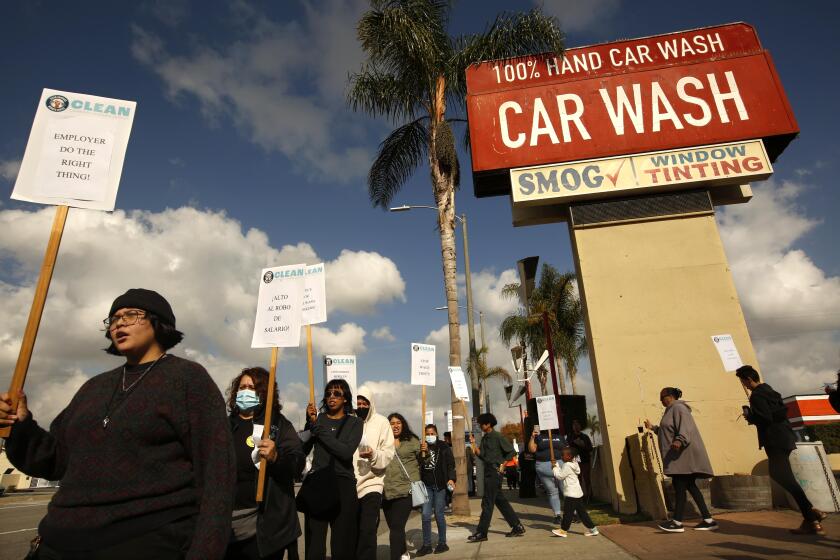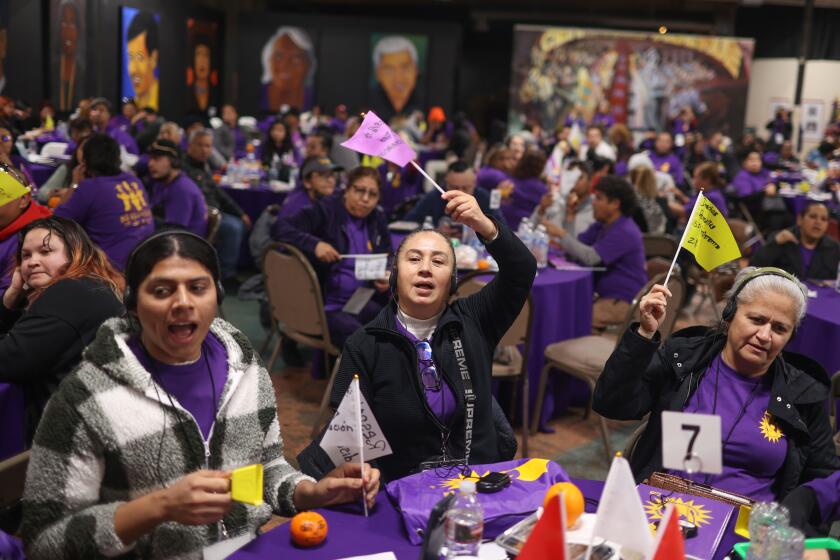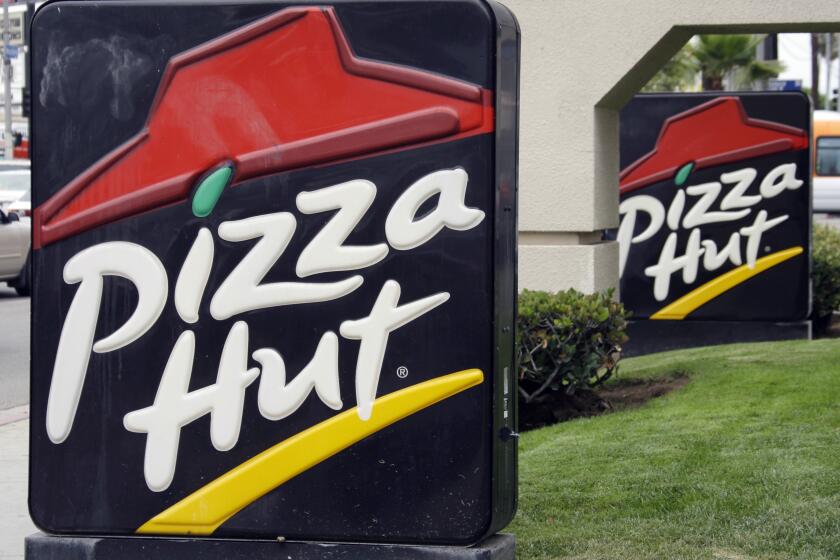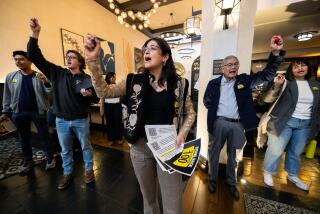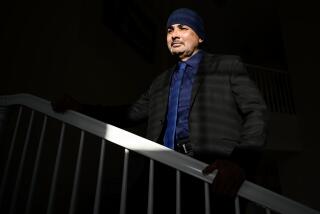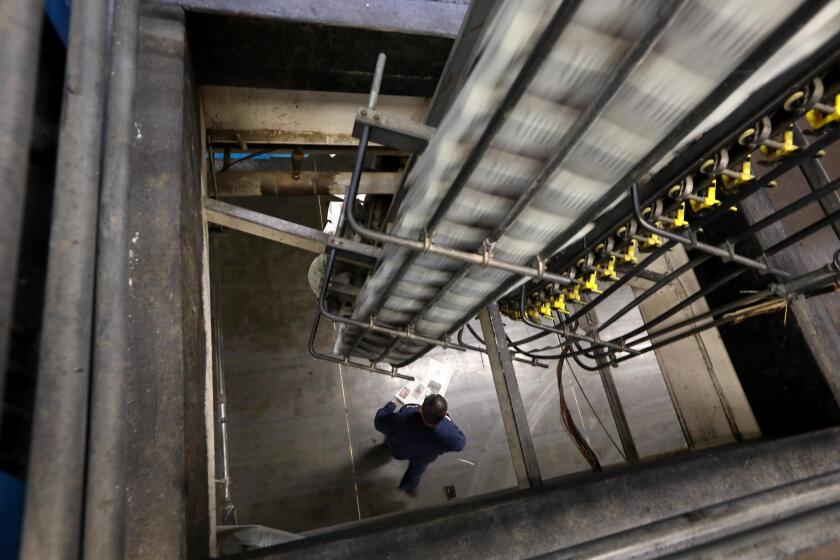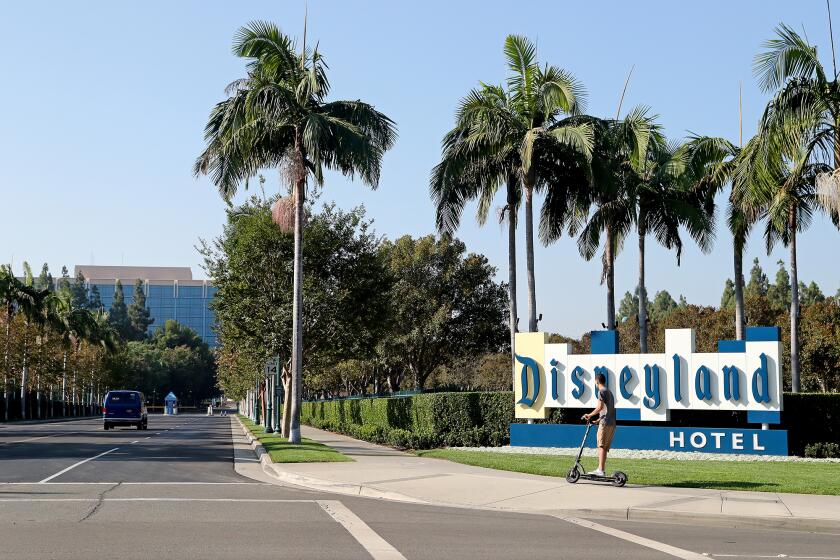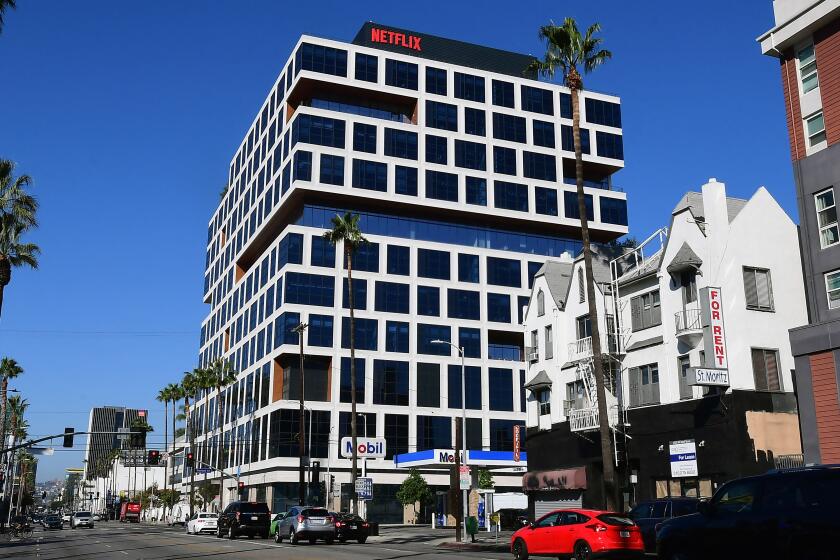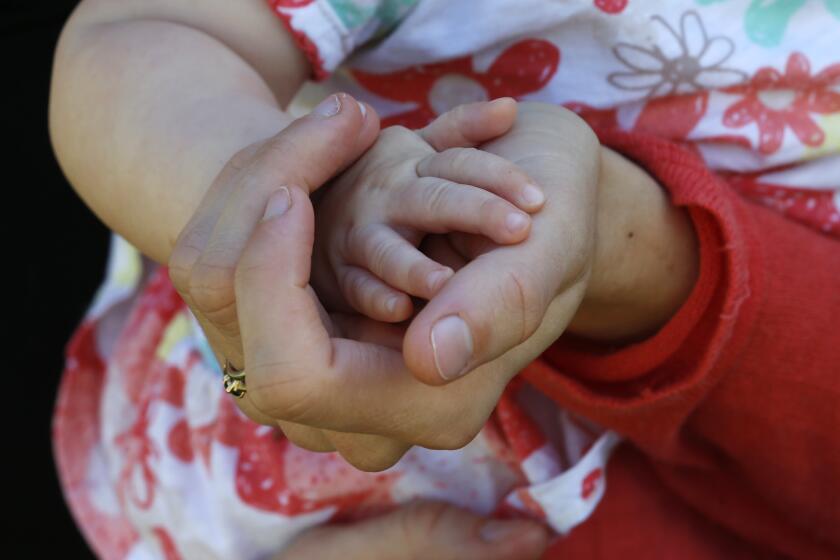Pizza Hut workers in L.A.’s Historic Filipinotown go on 3-day strike, alleging wage theft
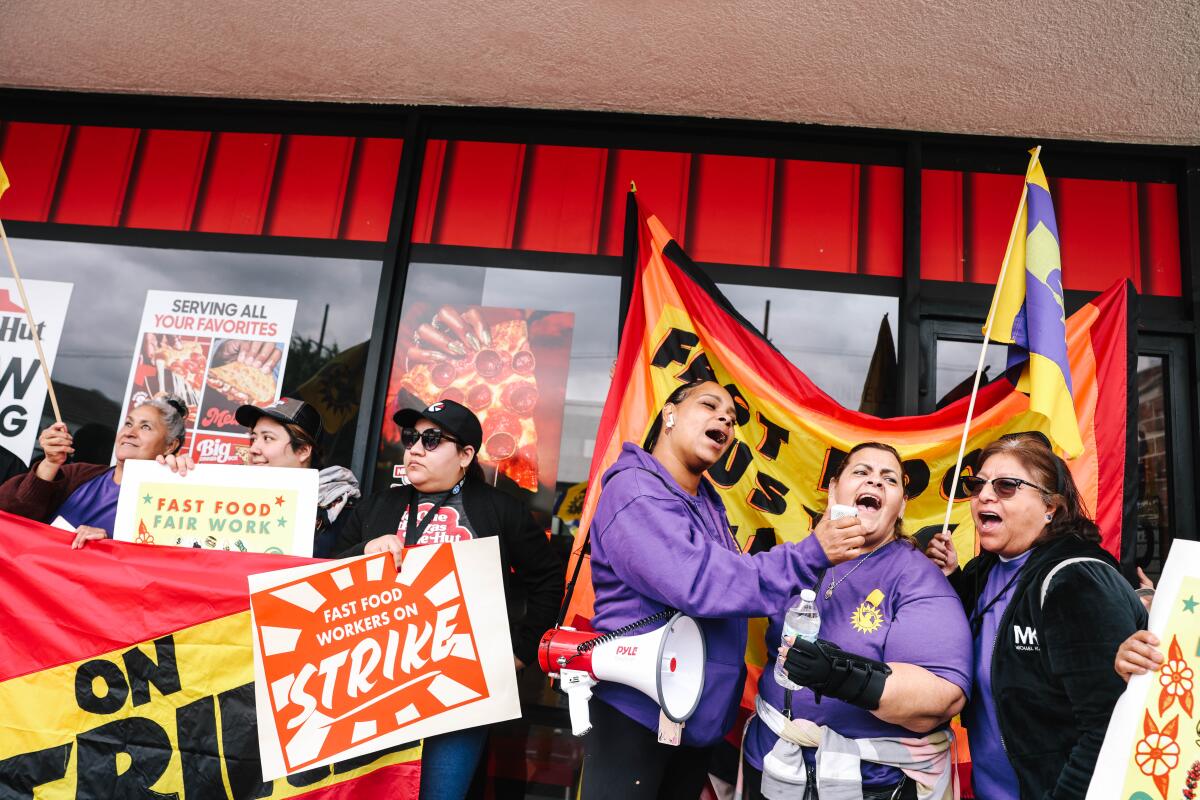
At a Pizza Hut restaurant in Historic Filipinotown, west of downtown Los Angeles, a slip of paper was taped Wednesday to the glass storefront announcing “STORE CLOSED” and “EMPLOYEES ON STRIKE.”
A handful of workers rallied outside with organizers from a new union for California fast-food workers to protest what they allege is ongoing wage theft by the Pizza Hut franchise owner.
Six current and former workers are staging a three-day strike to bring attention to their cause, and with help from the new union, five of them filed a complaint with the state labor commissioner’s office Wednesday alleging that store management skimmed hours from their paychecks, required training and overtime work while refusing to pay for it, and declined to pay for sick leave — amounting to some $81,443 in back pay and penalties.
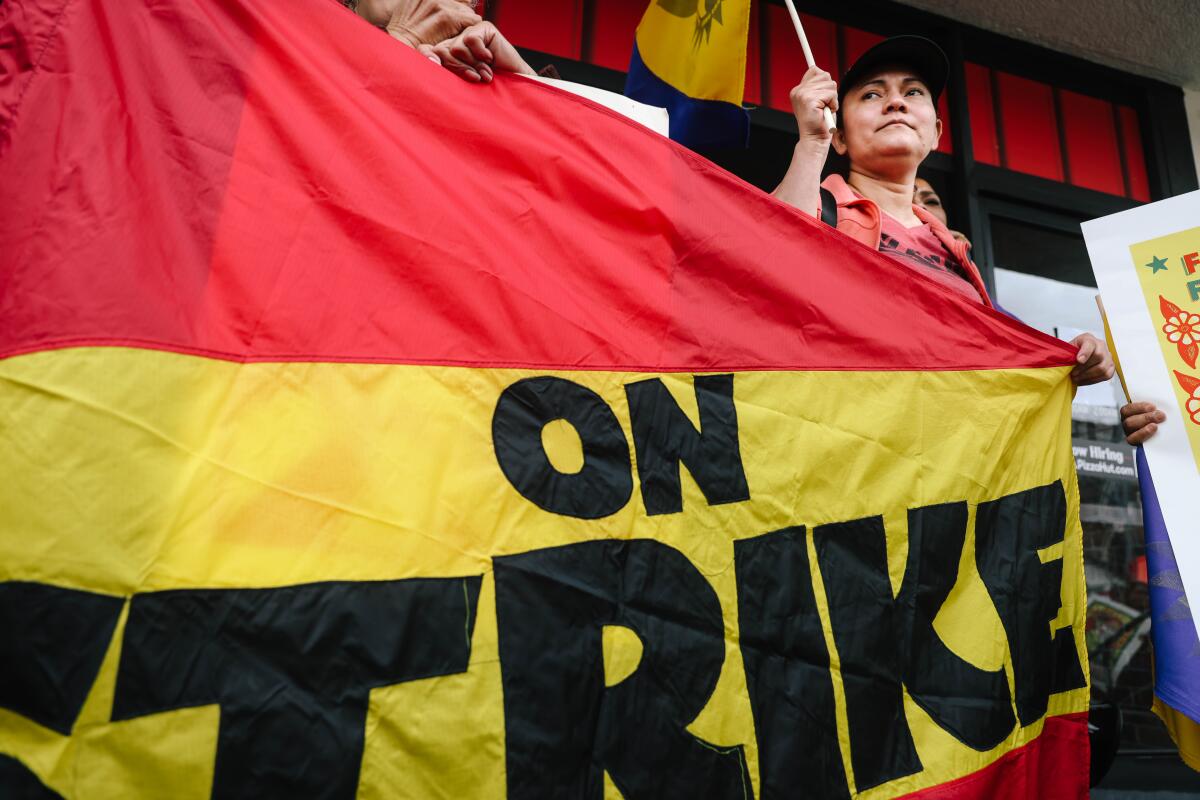
The complaint also alleges store management enforced “abusive and chaotic scheduling,” with changes to workers’ schedules multiple times a week; workers at times have been sent home at the beginning of their shifts without prior notification or pay.
“Management is subjecting us to nearly every form of wage theft,” the complaint reads.
The Pizza Hut store’s management did not respond to a phone call requesting comment.
Southern California Pizza Co., the franchisee operating the Pizza Hut restaurant, also did not respond to a phone call requesting comment.
A business-backed ballot initiative would hurt workers, labor researchers say. But proponents say lawsuits don’t help workers and hurt small businesses and nonprofits.
Although the number of workers involved in the labor action is small, the accusations of wage theft illustrate a pervasive problem in restaurant and other low-wage industries, labor advocates say.
Forms of wage theft can include violations such as failure to pay for all hours worked, paying workers less than minimum wage, refusing to pay overtime, denying workers meal breaks or rest periods, and requiring employees to finish tasks before or after their shifts. The Economic Policy Institute said in 2014 that wage theft costs American workers as much as $50 billion a year.
The strike comes as part of a broader push from the newly formed California Fast Food Workers Union for improved work standards as well as predictable and stable scheduling for workers.
The union, inaugurated early last month, is a unique effort that seeks to pave the way for more than half a million workers at fast-food chains across the state to bargain as a single sector as a member of California’s Fast Food Council.
Problems have plagued the Pizza Hut on Temple Street since a new store manager took over about six months ago. Franchise owner Southern California Pizza Co. announced the day before Christmas that it would be laying off delivery drivers, said workers and union representatives. Workers protested the layoffs and what they describe as abusive scheduling during a one-day strike on Jan. 26.
The California Fast Food Workers Union gives increased clout to employees scattered across multiple chains.
Shwetha Ganesh, a spokesperson for the union, said when two Pizza Hut franchisees in California announced they were laying off delivery drivers and would rely on gig delivery services, analysts blamed the layoffs on the new $20 pay floor. But Pizza Hut began working with those services more than a year ago — not to save money but because management could not hire enough drivers, she said.
Three workers who walked off the job in the most recent strike Wednesday said they were intimidated by bosses to not take lunch breaks or take paid time off they were legally entitled to. Two said their hours had been cut in retaliation for speaking out about their concerns.
Store management recently hired three new employees, even though current employees aren’t getting enough hours scheduled to pay their bills, workers said. The store has about a dozen workers total.
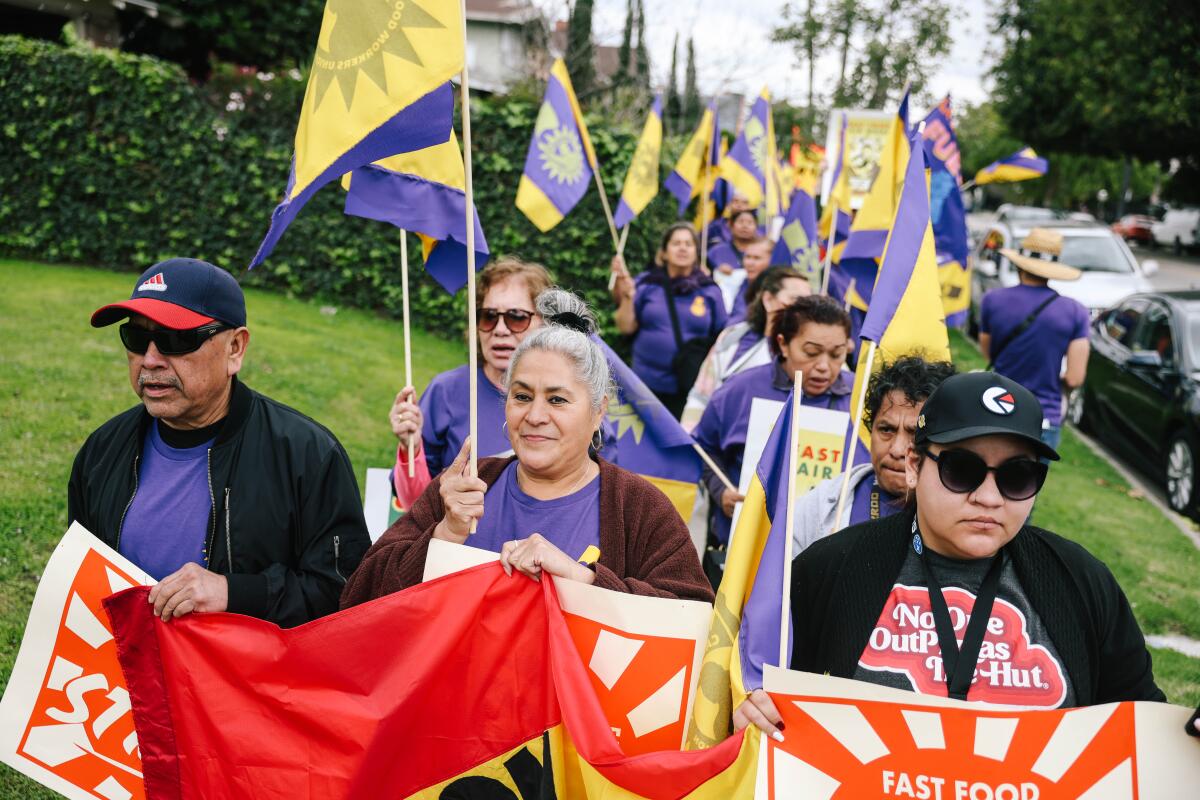
“We’re on strike because we are asserting our rights. We want to get paid, and we want our old schedules back,” said Kimberly Oliva, 20, who has worked as a cook at the Pizza Hut for about a year.
Oliva said she used to be scheduled about 46 hours per week; now, she gets only 16. The dramatic cut in hours has strained her wallet. She has been forced to borrow thousands of dollars from her aunt and uncle.
Oliva lives with her dad and two siblings, and helps pay for rent, food, gas, clothing and car insurance as well as sending money regularly to her mom in Guatemala.
Oliva said the loss of income and antagonistic attitude from the store manager have taken a toll. Last week, when Oliva asked for time off because her grandma had died, her manager shut her down, threatening to lay her off, she said.
“I’m very worried, I’m sick, I’m stressed. My nerves are really tense to the point where I have eye problems,” she said. “I have never felt so sick.”
Ahead of minimum wage increases, hundreds of California Pizza Huts are cutting delivery services and laying off drivers.
Julieta Garcia, a cook at the Pizza Hut who participated in the protest, said in her statement to the labor commissioner’s office that she had to miss work Dec. 3 and 4 after going to the emergency room for a muscular lesion, and requested paid sick time. But a shift manager told her the store manager said paid sick time was not yet available to Garcia.
Garcia said in her written statement that she realized she had been lied to when she spoke with organizers with the California Fast Food Workers Union who told her she is legally entitled to paid sick time after being employed for 90 days; at that point she had been working at Pizza Hut for some seven months.
Garcia said in an interview that stress at work and heavier workloads have aggravated her health issues. She had to visit the emergency room again in February because she was experiencing severe headaches, and she was once again denied paid sick time. In addition to her responsibilities as a cook, she is now also expected to sweep, mop and wash dishes — all duties that delivery drivers used to take care of, she said.
“I feel stress, I feel headaches, I get migraines — I need my paid time off,” Garcia said.
Ganesh, the union spokesperson, said problems Garcia and other Pizza Hut workers are facing are widespread in the fast-food industry. Ganesh pointed to a report published by the union on Wednesday finding that 88% of California fast-food workers do not know their rights on the job and broadly lack information about essential benefits and programs.
The report, co-authored by the Step Forward Foundation, an immigrant advocacy group providing free legal services, also found that 73% of California fast-food workers do not know how much additional pay they are entitled to if they are forced to work through a meal break or rest breaks.
The union has called on local officials in Los Angeles and San Jose to draft and approve “fast-food fair work ordinances” securing paid time off provisions, predictive scheduling tools and mandatory “know your rights” training for workers.
Daniela Soto, a shift manager at the Pizza Hut who opened the store Wednesday morning, was working when workers and Service Employees International Union organizers gathered outside for a noon protest.
Soto hadn’t originally planned to participate in the strike, but she closed the store to show solidarity and joined the protest. Staff from a nearby Pizza Hut location arrived about 30 minutes later to reopen the store, she said.
“I am upset about what they did to the drivers,” Soto said. “I got involved in the strike because I’m seeing a lot of unfairness there.”
